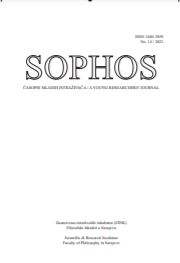MOZAK KOJI STARI: PROMJENE U IZVRŠNIM FUNKCIJAMA
THE AGEING BRAIN: CHANGES IN EXECUTIVE FUNCTIONS
Author(s): Katarina Mišetić, Maida Koso-DrljevićSubject(s): Sociology, Health and medicine and law
Published by: Filozofski fakultet u Sarajevu - Znanstveno-istraživački inkubator
Keywords: brain; executive functions; cognitive training;
Summary/Abstract: The brain as one of the main organs of human body monitoring everything else is liable to aging. Changes that occur on molecular and cellular levels result both in visible structural changes as well as in changes in cognitive and executive functions. In the field of neurophysiology, significant progress has been made in identifying age-related changes in executive functions and mapping the areas in the brain responsible for these changes. The prefrontal cortex is conceived as the neural seat of the executive functions. Brain aging results in deposition of lipofuscin in nerve cells, accumulation of senile plaques and neurofibrillary tangles and reduced brain microcirculation, resulting in mild cognitive dysfunctions such as decline in information processing speed, reduced working memory function and poorer performance on inhibition tasks. The changes coming with cognitive decline do not necessarily have to be irreversible. Autonomy can be preserved with cognitive trainings can preserve autonomy and the decline of cognitive functions can be prevented.
Journal: Sophos- časopis mladih istraživača
- Issue Year: 2021
- Issue No: 14
- Page Range: 75-89
- Page Count: 15
- Language: Croatian

